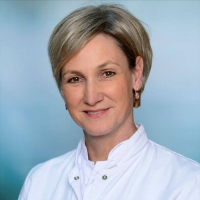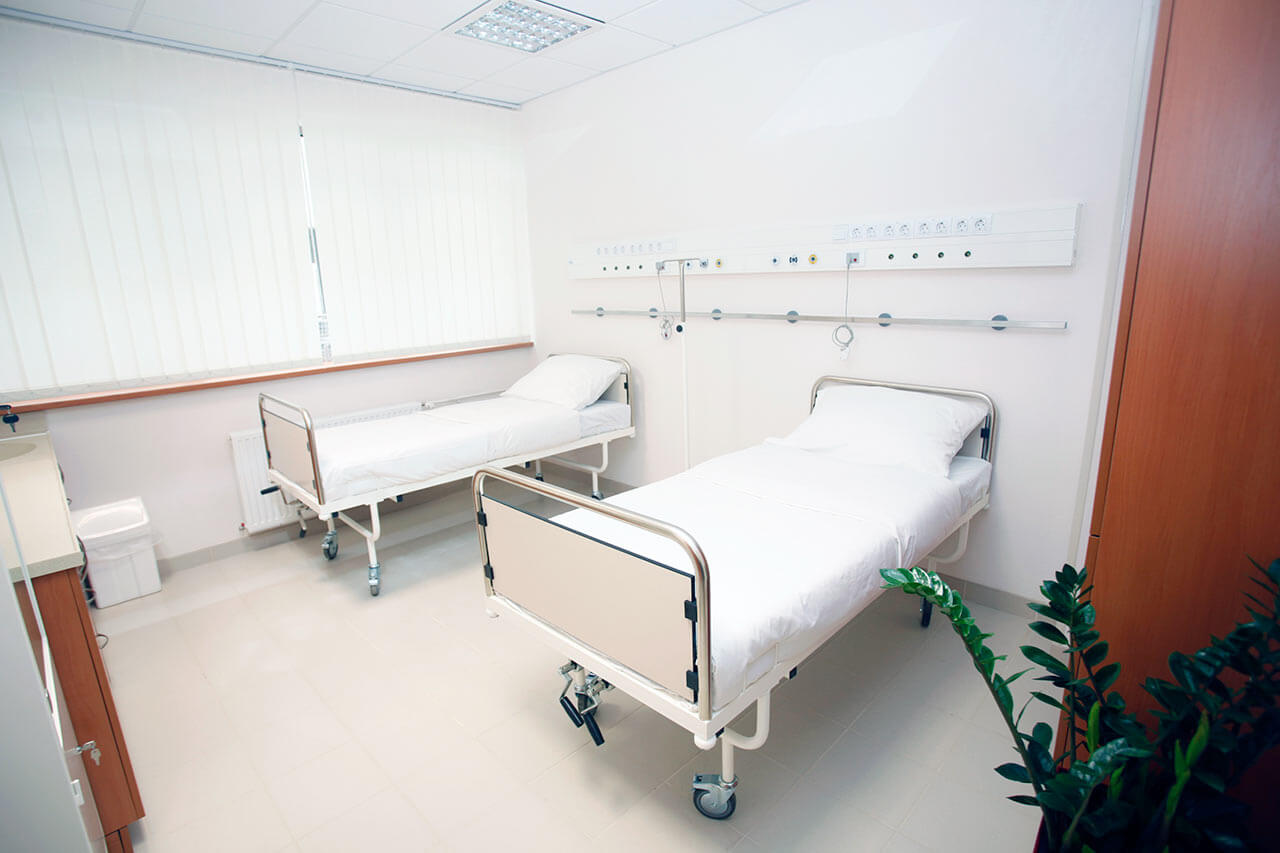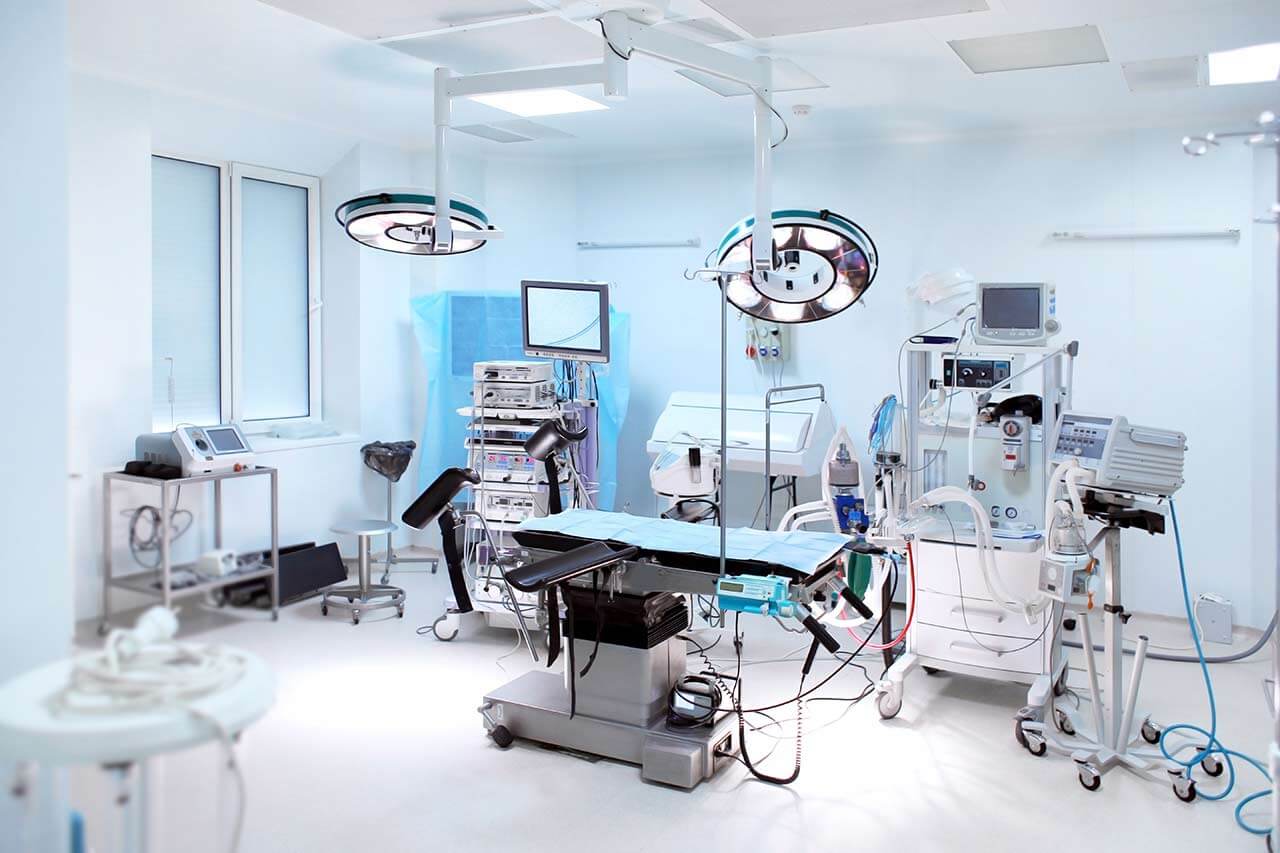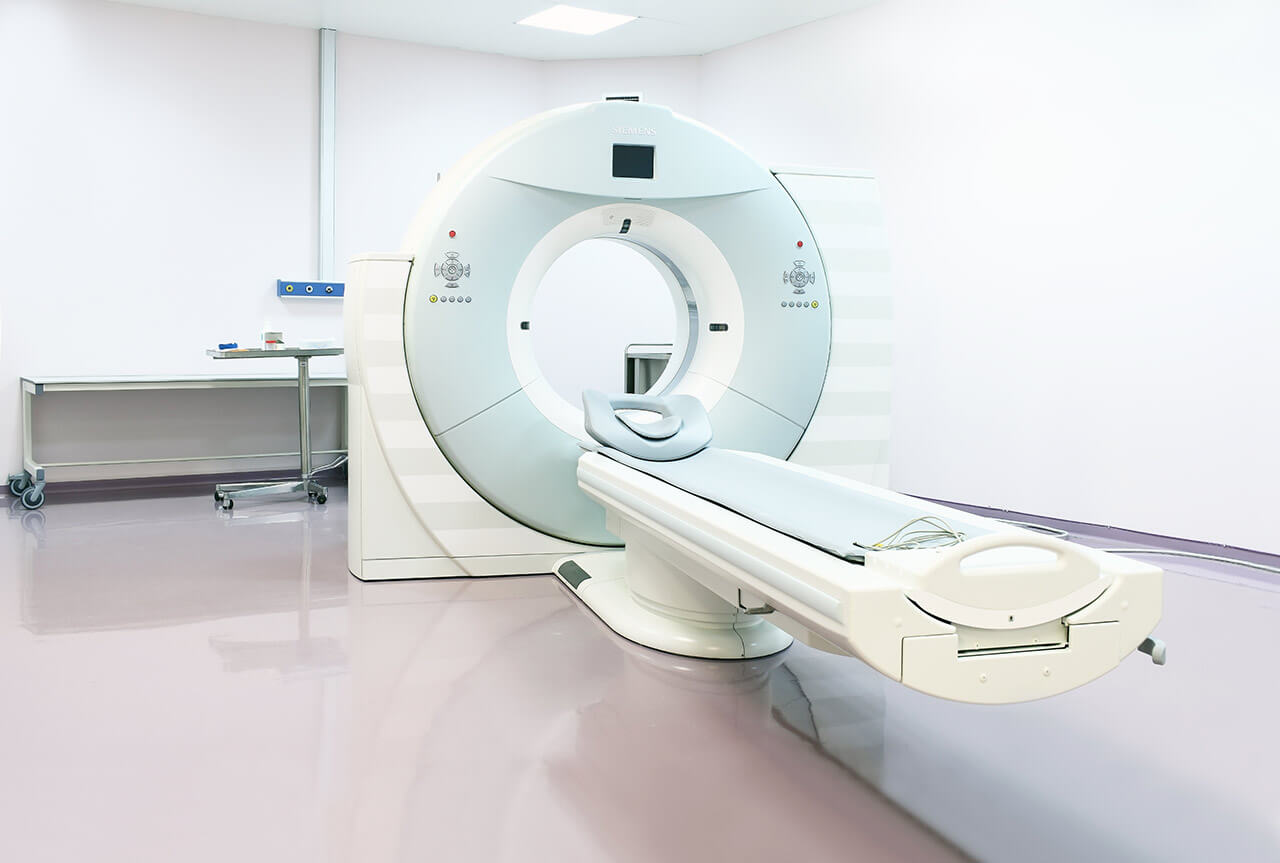
The program includes:
- Initial presentation in the clinic
- clinical history taking
- physical examination
- laboratory tests:
- complete blood count
- biochemical analysis of blood
- TSH-basal
- tumor markers
- inflammation indicators
- indicators of blood coagulation
- MRI scan of the breast
- mammography
- breast sonography
- testing for ER and PR
- HER2 status
- Oncotype DX test (if indicated, additional cost is 4000 €)
- Mammaprint test (if indicated, additional cost is 3000 €)
- consultations of related specialists
- 1 curse of chemotherapy
- nursing services
- explanation of individual treatment plan
How program is carried out
During the first visit, the doctor will conduct a clinical examination and go through the results of previous laboratory tests and instrumental examinations. After that, you will undergo an additional examination, including laboratory assessment of liver and kidney function, ultrasound scan. Based on the received results, the doctor will elaborate the chemotherapy regimen. If necessary, related medical specialists will be involved in the elaboration of a treatment regimen (tumor board).
Chemotherapy is carried out as the day hospital procedure, without mandatory admission to the hospital. After the placement of a venous catheter, you will stay in a comfortable ward. An infusion system will be connected to the catheter, through which the required drug or a drug combination will be administered. All drugs are administered by intravenous drip, slowly, so the total duration of the infusion can be up to several hours. All this time, doctors and nurses will monitor your health condition closely.
After the course of chemotherapy, you will stay under medical supervision in the ward for a few more hours. If your general condition is good, your doctor will allow you to leave the hospital. You will receive the medical report with detailed recommendations regarding further treatment. In the future, you will be able to have a distant consultation with your attending physician and schedule the next course of chemotherapy, if necessary.
Required documents
- Medical records
- MRI/CT scan (not older than 3 months)
- Biopsy results (if available)
Service
You may also book:
 BookingHealth Price from:
BookingHealth Price from:
About the department
The Department of Mammology at the Asklepios Hospital Barmbek Hamburg provides patients with comprehensive diagnostics and conservative and surgical treatment of breast diseases. The department admits patients with benign and malignant breast pathologies, but due to the high frequency of breast cancer, special attention is paid to providing medical care to women with this diagnosis. The medical facility was awarded the prestigious quality certificates of the German Cancer Society (DKG) and the German Society for Senology (DGS), which testify to compliance with the strict requirements in modern mammology and high treatment success rates. The department employs a qualified team consisting of breast specialists, oncologists, radiologists, radiation therapists, plastic surgeons, psycho-oncologists, and specially trained nursing staff. Their task is to provide each patient with effective and minimally invasive treatment, if possible. The aesthetic aspect also plays an important role in the planning of breast cancer surgery. The doctors always show a humane attitude and understanding of the patient's life situation and strive to morally support the woman throughout the therapeutic process. The exceptional professionalism of doctors combined with advanced technologies allows them to take on the most complicated clinical cases and achieve good results. The Head Physician of the department is Dr. med. Ursula Scholz.
Breast cancer is currently one of the most common oncological diseases among women. The department's specialists are convinced that the key to successful treatment of this pathology is a timely and accurate diagnosis. The department's doctors have state-of-the-art diagnostic equipment, such as devices for ultrasound scanning, mammography, magnetic resonance imaging, etc. The department's breast specialists also perform a biopsy (tissue sampling) to make an accurate diagnosis and determine the nature of suspicious changes in the breast. For maximum comfort and safety for the patients, these diagnostic procedures are carried out under local anesthesia and under ultrasound or mammography guidance.
If the results of comprehensive diagnostics in a woman confirm cancer, doctors immediately begin to elaborate a customized treatment regimen. As a rule, the first-line treatment is a surgical intervention to remove the tumor. In advanced stages, radical surgery to remove the breast may be required, but the number of such operations in the department is negligible. Nevertheless, even if the breast is preserved, part of the tissue is removed during surgery, which affects the appearance. The department's doctors perform modern plastic surgery to eliminate aesthetic defects. When total breast removal surgery is unavoidable, the patient is offered breast plastic surgery with implants or autologous tissues.
After breast-conserving surgery, radiation therapy is prescribed in most cases, which helps the doctors reduce the risk of recurrence. In addition, if the malignant process affects axillary lymph nodes, radiation therapy is carried out after complete breast removal surgery. The department also conducts drug therapy for breast cancer. Depending on the tumor's characteristics, the department's specialists may prescribe chemotherapy, antihormone therapy, antibody therapy, or a combination of these treatments. As a rule, drug therapy and irradiation are carried out on an outpatient basis without a mandatory hospitalization.
It is known that in many cases, the cause of cancer is heredity. Due to the inheritance of the BRCA1/2 gene (the so-called breast cancer gene), the risk of developing breast cancer (even in men) during life increases. Therefore, the department's range of services includes the prevention of this type of cancer through regular check-ups or breast removal (mastectomy).
The department's scope of tasks also includes the treatment of benign breast pathologies. Fibroadenomas, mastopathy, cysts, lipomas, and many other diseases are diagnosed and treated here. Patients with benign neoplasms usually require only regular check-ups to control the growth of the neoplasm. However, if there are indications for the removal of a benign tumor, then a minimally traumatic intervention will be performed. A fine-needle aspiration biopsy is widely used for the removal of small cysts and fibroadenomas. The procedure is absolutely safe, and anesthesia is not required.
The department's range of medical services includes:
- Diagnostics
- Ultrasound scans
- Mammography
- Magnetic resonance imaging
- Biopsy under ultrasound or mammography guidance
- Laboratory tests
- Treatment
- Surgical treatment
- Surgical resection of benign and malignant breast tumors
- Partial and total mastectomy (breast removal surgery)
- Reconstructive breast surgery with silicone implants or autologous tissue
- Conservative treatment
- Radiation therapy
- Chemotherapy
- Antibody therapy
- Antihormone therapy
- Surgical treatment
- Other diagnostic and treatment methods
Curriculum vitae
Since July 1, 2016, Dr. med. Ursula Scholz has been the Head Physician of the Department of Mammology at the Asklepios Hospital Barmbek Hamburg, prior to which she was also a Senior Physician. The specialist graduated from the Georg August University of Goettingen. Dr. Scholz completed her training for board certification at the Hannover Medical School. Her main focuses at that time were gynecologic oncology and mammology. On January 1, 2010, Dr. med. Ursula Scholz became the first woman to head the Department of Mammology and Gynecology at the University Hospital Hamburg-Eppendorf. In 2013, she held the position of Managing Senior Physician in the Breast Center at the Jerusalem Hospital in Hamburg.
Photo of the doctor: (c) Asklepios Klinik Barmbek
About hospital
The Asklepios Hospital Barmbek Hamburg is an academic hospital of the University of Hamburg. The hospital was opened in 2005, and today it is one of the best and most modern medical centers in Europe. The priority areas of specialization of the medical facility are emergency medical care and comprehensive treatment of cancer, urologic diseases, gastrointestinal diseases, and pulmonary diseases, as well as abdominal surgery and thoracic surgery. The hospital provides patients with top-class medical services that meet international standards.
The hospital has 620 beds. More than 36,000 inpatients and about 74,000 outpatients are treated here every year. The patients' health is in the safe hands of a highly professional team of over 1,600 doctors and nursing staff.
The hospital offers high-quality diagnostic and therapeutic services and strictly follows current clinical protocols. The hospital boasts modern infrastructure and state-of-the-art medical equipment. The hospital is one of the few in Europe where patients are successfully operated on using the da Vinci surgical system. The hospital also houses well-equipped endoscopy rooms, cardiac catheterization laboratories, laser surgery rooms, and operating rooms for arthroscopic interventions. All these technical resources contribute to effective and, at the same time, minimally traumatic treatment.
It is worth noting that the hospital has vast experience in serving international patients. According to the Medical Travel Quality Alliance (MTQUA), the Asklepios Hospital Barmbek Hamburg ranks among the top three medical centers worldwide for medical tourism.
The medical center also holds the international DIN EN ISO 9001:2015 quality certificate, attesting to the excellent medical services provided. For its outstanding achievements in oncology and surgery, the hospital has been awarded certificates from the German Cancer Society (DKG) and the German Society for General and Visceral Surgery (DGAV).
Photo: (с) depositphotos
Accommodation in hospital
Patients rooms
The patients of the Asklepios Hospital Barmbek Hamburg live in comfortable single and double rooms. Each patient room has an ensuite bathroom with a shower and a toilet. The patient room furnishings include an automatically adjustable bed, a bedside table, a table and chairs for visitors, a TV, a radio, and a telephone. Wi-Fi access is also available in the patient rooms.
Patients can also be accommodated in enhanced-comfort rooms, which additionally include a rest area with upholstered furniture and a working area with a desk and a reading lamp. The bathroom in the enhanced-comfort rooms includes necessary toiletries, changeable towels, bathrobes, slippers, and a hairdryer. The enhanced-comfort rooms correspond to the standards of a high-class hotel.
Meals and Menus
The hospital offers tasty and balanced meals. Patients receive several menus to choose from and can see the menu in advance using a special mobile application. The hospital takes patients' food preferences into account and offers a wide range of dietary and vegetarian dishes. Breakfast, lunch, and dinner are served in the patient's room.
There is a cozy cafeteria on the first floor of the hospital where one can enjoy a cup of aromatic coffee or delicious tea with a dessert. The cafeteria offers a wide selection of snacks and salads.
There is a small store on the territory of the hospital where one can buy fresh fruits, yogurts, sweets, and magazines.
Further details
Standard rooms include:
Religion
There is a prayer room on the first floor of the hospital where patients can find solitude for prayer.
The hospital has an evangelical pastor who is happy to talk with patients and support them in the process of their treatment.
Representatives of other religions are available upon request.
Accompanying person
Your accompanying person may stay with you in your patient room or at the hotel of your choice during the inpatient program.
Hotel
You may stay at the hotel of your choice during the outpatient program. Our managers will support you for selecting the best option.





